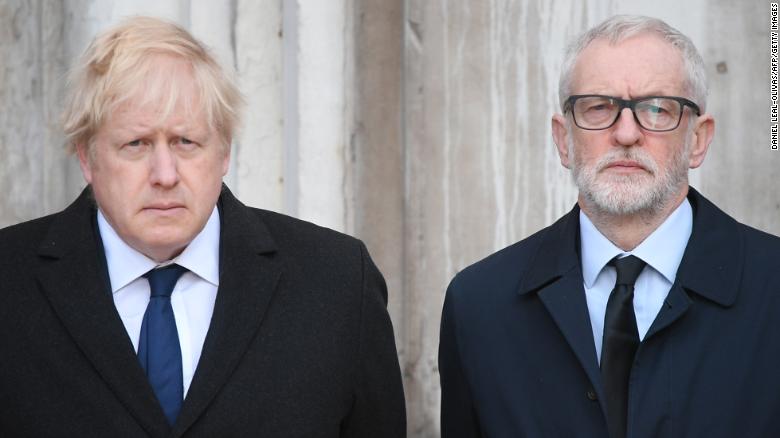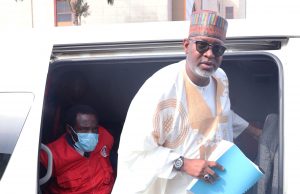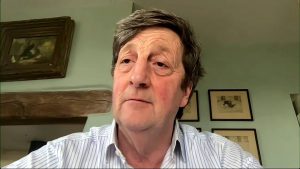Everything you need to know about the UK’s crucial election

It isn’t hyperbole to say that this poll comes at a critical time for the UK; a country whose position in the world is in flux, and whose future is far from certain. Brits have been confronted with two drastically different visions for what comes next, and must decide between two very different men to lead them there. Brexit, the all-consuming political behemoth that has brought the country to a standstill since 2016, has dominated discussions during the six-week campaign. But other issues such as healthcare, climate change, taxes and social care have also been center stage, and disputes between Prime Minister Boris Johnson’s Conservatives and Jeremy Corbyn’s opposition Labour Party have been heated.By Friday morning, we should know which side will form Britain’s next government.Why is an election happening now?In a word: Brexit.Since former Prime Minister Theresa May’s disastrous gamble on a snap election in 2017 deprived her of a working majority in the House of Commons, Britain’s Parliament has been at a political standstill. That result prevented May from passing her Brexit deal three times and dealt Johnson a series of defeats over his own Brexit strategy.The next election was not due to take place until 2022. But Johnson came to the same conclusion as May — that the only way out of the impasse was to hold an early vote in an attempt to seek a parliamentary majority in order to enact his Brexit plan. Opposition lawmakers backed his call after weeks of debate, and set the date of Britain’s first December election since 1923.What’s happened during the campaign?Candidates have dutifully appeared in a checklist of traditional election photo ops; they’ve read books to bored school children, piped campaign messages onto doughnuts and had babies thrust into their arms as they maneuver through crowds of supporters. But in virtually every other way, the two major parties took significantly different approaches to the election. Johnson attempted to hammer home his central message, repeating his slogan “Get Brexit Done” at every opportunity and claiming he would secure the UK’s withdrawal by January 31 if he wins a majority. Opponents have pointed out, though, that even if he does pass his withdrawal deal through Parliament, more difficult negotiations over trade would ensue with the EU and the United States.Johnson has limited his media appearances during the campaign and has faced criticism over his refusal to do a number of high-profile TV interviews. Corbyn is offering a confirmatory referendum on a softer Brexit deal within six months if he wins power, but the Labour leader has spent much less time discussing the B-word on the campaign trail.Instead, he’s focused on his ambitious domestic agenda, which promises an end to years of austerity and a number of funding increases. He’s also put the UK’s National Health Service (NHS) at the center of the campaign, warning of the potential impact a UK-US trade deal might have on the service.He’s pledged to renationalize Britain’s railways, water and energy companies, and to implement an increased tax on Britain’s highest earners. But Corbyn has faced a rougher ride than he did in his energized 2017 campaign, and recurrent allegations of anti-Semitism within Labour have dogged his party’s efforts.Meanwhile, two smaller parties — the anti-Brexit Liberal Democrats and Nigel Farage’s Brexit Party — started the campaign with respectable polling figures but have been squeezed by the big two blocs.Who’s going to win?Johnson liked his chances of winning enough to call the election, and pollsters have consistently given him a lead over Corbyn throughout the campaign. The gap has narrowed slightly, but not enough to change most pundits’ predictions. But we’ve been here before. The Conservatives were expected to win a landslide in 2017, but they lost seats. They were expected to finish neck and neck with Labour in 2015, but earned a comfortable victory. Adding to the uncertainty for Johnson is that anything other than an outright win could see him locked out of Downing Street. Parties need at least 320 seats to command a majority in Parliament, and the Conservatives have few, if any, partners to help them out should they come up short. Predicting British elections is a fool’s game, but most pundits agree that if the gap between Labour and the Conservatives ends up in the low-to-mid single digits, we could be in hung Parliament territory.And a final projection from pollster YouGov on Tuesday concluded that the Tories’ lead had dropped significantly, giving a late boost to opposition parties hoping to oust Johnson.OK, what’s a hung Parliament?In the UK, voters don’t elect a prime minister directly. Instead, they elect a member of parliament (MP) to represent their local constituency. The leader of the party which wins a majority of the UK’s 650 constituencies automatically becomes Prime Minister. But if there’s no majority, they need to look for help elsewhere.That’s the problem May was faced with when the 2017 election resulted in a hung Parliament. She struck a deal with Northern Ireland’s Democratic Unionist Party (DUP) to prop up her minority government. Johnson likely won’t have the same luxury, having burned his bridges with the DUP by putting a customs border in the Irish sea as part of his Brexit deal.Parties can also form an official coalition, as David Cameron did with the Liberal Democrats in 2010.In the short-term, another hung Parliament would mean days of frantic negotiating as teams in both camps seek to find a path to power.But Labour are the more natural bedfellows of virtually all opposition parties. If they can get over the line with a so-called “rainbow” coalition of several different parties, a second Brexit referendum becomes very likely, as that’s also the ambition of the Scottish National Party and the Liberal Democrats — who will be expected to finish as the third and fourth-biggest parties in Westminster at the end of the night.When do we get the results?Polls are open from 7 a.m. local time (2 a.m. ET) on Thursday until 10 p.m. The second they close, we get the first big moment of the night — the exit poll, which predicts a usually-accurate picture of where the votes have gone.British elections are notoriously low-tech — voters mark an “X” on a sheet of paper with a stubby pencil and drop it into a box — so results take some time to come through. From about 11.00 p.m. we’ll get the first figures, and counting will continue through the night. Brexit has thrown the UK’s traditional electoral map up in the air; Conservatives are targeting traditional Labour areas which voted to leave the EU, while Labour and the Liberal Democrats are hoping to capitalize on support in areas further south that had a large remain vote. That all means that results can still surprise us, and a narrative of the night may not appear for some time. Still, by sunrise we usually know who’s heading to Downing Street.What should we be watching for on election night?There’s a race between two rival cities in northeast England — Newcastle and Sunderland — to call the first result (at around 11 p.m.) and no one else in the country knows why this is a thing. Labour will expect to win in both places.The next handful of seats to be called (around midnight) are Labour safe seats — but from these early results we should still get an early indication from the vote share of how the campaign messages have played out in the region.Workington, which will be called around 1 a.m., could be the first crucial marginal to be announced. The constituency in northwest England has become a symbol of the kind of traditionally Labour, Brexit-backing seats that the Conservatives want to snatch, and polls there are neck and neck. If the Tories win it comfortably, they’ll be confident of a good night. If Labour hold it, it will be a great start to their evening.Then, at 2 a.m., the trickle turns into a flood as many more constituencies are called. We’ll find out if Labour has been able to defend its so-called “Red Wall” in the Midlands, northwest England and Wales, which the Tories have been relentlessly targeting. Watch out for Bury North, Stockton South and Wrexham as key bellwethers in that time slot.After 3 a.m. the action creeps further south, and we’ll find out if Labour and the Liberal Democrats are making gains in Remain-leaning areas — crucial if Jeremy Corbyn is to become Prime Minister. Labour want to pick up Norwich North, Hastings and Rye, and — if it’s a sensational night — Boris Johnson’s seat in Uxbridge and South Ruislip. The Lib Dems have their eyes on Wokingham, Guildford, and Foreign Secretary Dominic Raab’s seat in Esher and Walton.One of the joys of British democracy is that even Prime Ministers have to show up to counting centers, often standing alongside a joke candidate who has run against them. That’s why Theresa May, sullen faced in the midst of an electoral disaster in 2017, had to make small talk with a candidate known as Lord Buckethead in the early hours of the morning while waiting for her result.If the Tories haven’t wrapped up a majority by 5 a.m., they’ll be very nervous indeed. Most of the late-declaring polls are in Remain areas of the South; seats like Hendon, Chipping Barnet and Milton Keynes North could end up deciding the election if the race is still tight.But remember — everything we think we know about UK elections in the post-Brexit era comes from the 2017 vote, which threw up countless unexpected trends. We’re about to double that knowledge on Friday morning, so expect the unexpected. ]]]]>]]>Isn’t it too cold for an election?British elections are traditionally in late spring, but since Brexit, political traditions have gone out of the window. The necessity of this vote means it’s coming in December, for the first time in nearly a century. Since it’s unprecedented in modern times, there’s no way of knowing what impact a December vote will have on turnout. It’s forecast to rain on Thursday across the country and sunset comes before 4 p.m., so parties will be hoping their supporters aren’t deterred from heading to the polls.Should I really have to stay up to watch it?Of course. If you’re in the UK or Europe and the results fall in the middle of the night, it’s still worth being a bit groggy on Friday to follow all the twists and turns of a monumental event in Britain.CNN will have live coverage and analysis throughout the night.







